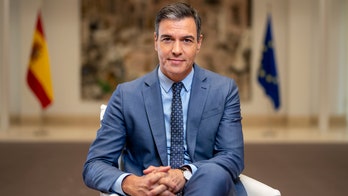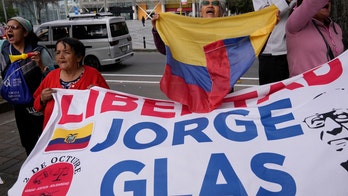Russia has turned to non-Western partners such as China, Saudi Arabia, and Zimbabwe to bolster its economy amidst sanctions and economic isolation imposed by the West. The St. Petersburg International Economic Forum (SPIEF) showcased Moscow's efforts to establish new economic alliances, with many attendees praising Russia and the event.

The war in Ukraine has led to a significant upheaval in Russia's economic relations with the West, mirroring the tensions of the Cuban Missile Crisis in 1962. Western sanctions have forced Russia to seek alternative investment and trade partners, leading to an economic pivot towards Asia and the non-Western world.

The St. Petersburg International Economic Forum (SPIEF), founded as a window to Europe, has become a platform for Russia to showcase its economy and attract investment from non-Western countries. Attendees from South America, Africa, and the Middle East have praised Russia and the event, while major Western companies have noticeably been absent.
Since Peter the Great's reign, Russia has relied on the West for technological advancements, investment, and ideas. However, the 2022 invasion of Ukraine has prompted a strategic shift towards Asia and the rest of the non-Western world.
Despite sanctions, Russia's economy has remained afloat due to its ties with China, regional powers in the Middle East, Africa, and Latin America. However, the extent of investment that these countries are willing to commit and the potential costs remain uncertain.
President Vladimir Putin has met with several foreign officials at SPIEF, including Zimbabwe's President Emmerson Mnangagwa and Saudi Arabia's energy minister. While trade with countries like Zimbabwe is currently minimal, Russian officials believe these relationships will expand.
The presence of the Taliban official at SPIEF signals Russia's willingness to engage with controversial regimes. However, the absence of Western investors and oligarchs highlights the profound economic isolation that Russia faces.
In Putin's Russia, the state has become the primary economic arbiter, with state-controlled banks such as Sberbank and VTB playing pivotal roles. The economic pivot towards the East represents a significant transformation in Russia's economic strategy, as it seeks to diversify its partnerships and reduce its dependence on the West.
As Russia continues to navigate the consequences of its actions in Ukraine, the outcome of its economic pivot towards the non-Western world remains uncertain. The extent of investment and support from these new partners will be crucial in determining Russia's economic trajectory in the years to come.










